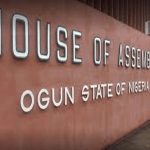By Olasunkanmi Akoni
As part of mitigation measures, Lagos State in 2018 developed a climate action plan, which is targeted at ensuring it achieves net zero by 2050.
Experts, government officials and stakeholders, recently converged on Lagos at a summit to ponder on prevention and mitigation of climate change in the state.
At the event, an environmentalist, Prof Adeniji Gbadegeshin, of the Department of Geography, University of Ibadan, UI, raised the alarm that the state is currently sinking due to the effects of global warming.
This came as Governor Babajide Sanwo-Olu, said his administration remains committed to working closely with experts, organisations, and the global community in building resilience in ensuring that the state remains at the forefront of climate action.
Sanwo-Olu stressed that the state government has developed a climate action plan to ensure it achieves net zero by 2050.
The duo spoke at the 2023 Annual Summit of the Association of Lagos State Retired Heads of Service and Permanent Secretaries, ALARHOSPS, with the theme: ‘Climate Change: Man, Nature and the Threat to Life: Lagos State as a Case Study,’ held in Alausa, Lagos.
Sanwo-Olu, represented by the Deputy Governor, Dr. Obafemi Hamzat, said his government is committed to adopting and promoting the culture of reusing resources to minimize waste.
He said: “Climate change is an undeniable reality that we have brought upon ourselves through our uncontrolled/unsustainable interaction with the environment with dire consequences that transcend borders, ideologies, and generations.
“The effects are already with us, manifesting in various forms including excessive drought, heat, and flooding among others.
“It is a challenge that requires collective responsibility and unwavering commitment to safeguard our planet and the lives it sustains.
“This theme also reflects the urgency with which we must address the impacts of climate change on both our environment and our communities.
Mitigate
“Lagos State, as a dynamic and vibrant hub, as well as being a littoral state, faces unique challenges when it comes to climate change. The complex interplay between urban development, population growth, and environmental preservation demands innovative solutions and decisive action.
“Our administration recognises the gravity of this challenge and has taken substantial strides in addition to building on the efforts of previous administrations to mitigate its effects.’’
Sinking
Giving a general overview of the theme, Gbadegeshin noted that climate change has become an issue of global discourse due to its harmful impact.
He said: “Looking at Lagos as a case study, to deal with the threats to life from climate accelerated flood risk, it is important that Lagos State Government promotes climate change mitigation and resilience building activities (also known as climate action) in its developmental activities across the state.
“Climate change has become an issue of global discourse due to its varied harmful impacts, many of which are being felt across the world. The effects of climate change include the melting of glaciers leading to sea level rise and more intense storm surges-a serious threat to Island nations, coastal and low-lying communities as found in Lagos State.
“Research has shown that Lagos is sinking. Research and experience point to climate change as a harbinger of several threats to life. These threats range from deaths due to coastal inundation, floods, the redistribution of diseases, and security threats due to migration, among others.
“The complexity of climate in the problem of flooding stems from some of its impacts such as flooding due to poor drainage, flooding from inundated floodplains and coastal flooding.’’
Source: Vanguard








